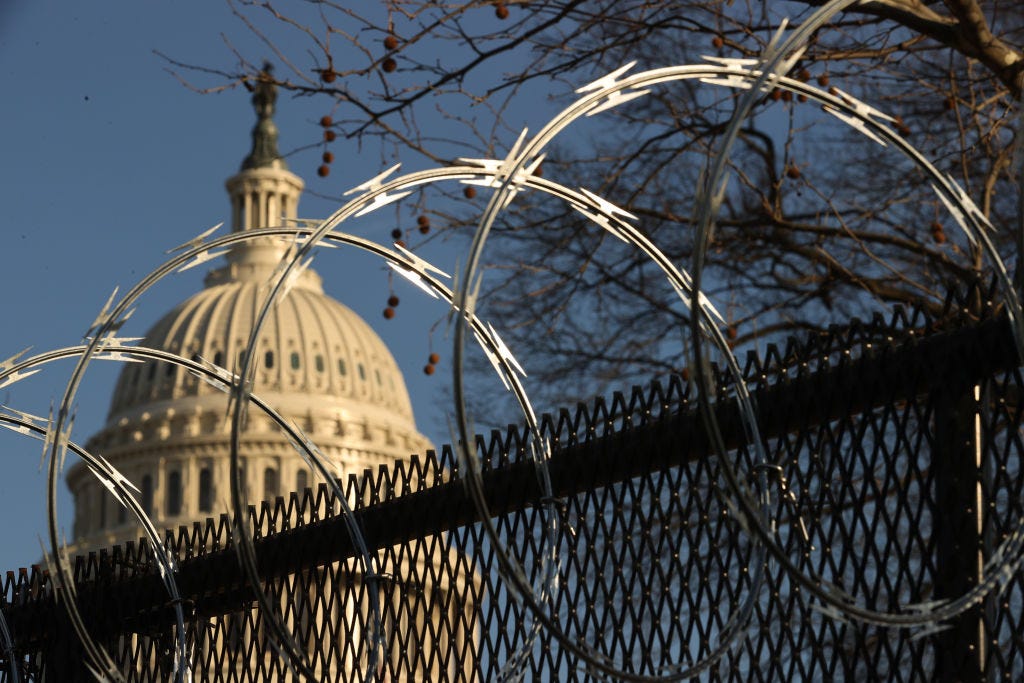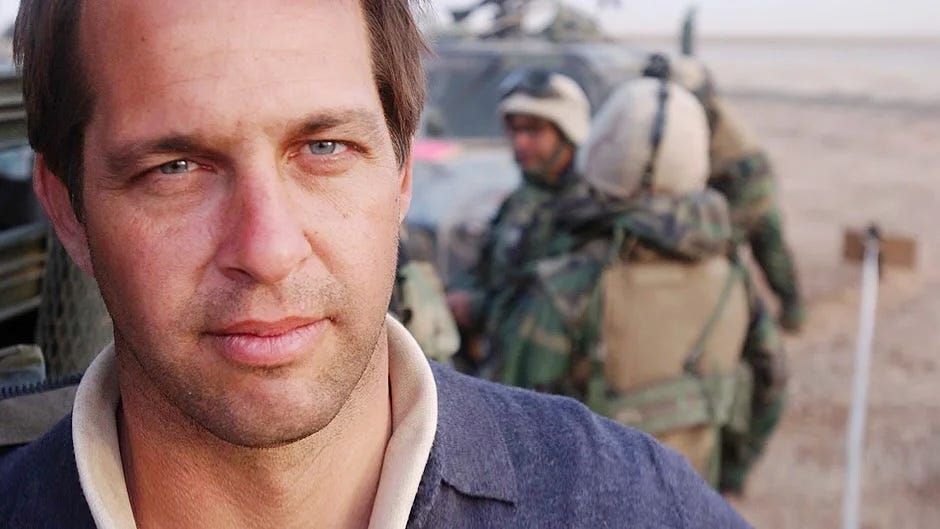America’s forever wars, at home and abroad
Veteran foreign correspondent Dexter Filkins on whether America’s proxy wars are really just wars, what he found on the border, and how he learned to recognize the telltale sign of a dying democracy
A foreign correspondent returning home can become a kind of therapist of the national soul, giving the place an unvarnished look tainted neither by familiarity nor hostility. Having covered the world, the returned foreign correspondent can see their own country with the distance of an adversary, though minus the enmity; with the loving concern of a native, minus the blinders.
That’s why I had a strong urge to speak to Dexter Filkins in recent days, as America’s global crises piled up. There was the multiplication of American entanglements in the Middle East — the war in Israel and Gaza as well as spasms of violence in Yemen, Jordan, Iraq, Syria, and beyond, which raised the question of whether America should understand itself to be in active warfare in the region, in particular with Iran, instead of hiding behind the idea of fighting proxy battles. There was the issue of the southern border of the United States, which Filkins has reported on after his long years in the Middle East. And, affecting America’s response to all of the above, there was the corrosion of democratic institutions at home, a corrosion Filkins has witnessed in far-off places.
I was eager to ask Filkins, a veteran correspondent for The New Yorker and other publications, and author of The Forever War, the essential account of the post-9/11 era of shadowy perpetual warfare, to turn his foreign correspondent’s lens on America. We talked about the roots of our political crises, how to understand what’s really going on at the southern border, and whether America has the resilience to repair the damage done to its democracy.
If you step back, how do you understand America at this moment, at the intersection of all these crises that you've reported on for so long?
On one hand, the world around us, everywhere from the Middle East to the Far East and to the middle of Europe, is either disintegrating or is in a state of instability or near instability. And at the same time that all those challenges are presenting themselves, the United States is completely paralyzed domestically to respond in a kind of coherent way.
So the other day, you had this really earnest bipartisan attempt in the Senate to deal with the chaotic and really catastrophic situation on the border. And at the same time, in the same bill, send a lot of money to Ukraine, which is defending itself against invasion in Europe by Russia, and at the same time, send a lot more money to Israel, which is in the middle of a very intense fight with Hamas. And it failed, it all collapsed. It all failed.
What I find so dispiriting about it is just, God, are we completely incapable of acting? Even when you have these enormous threats and these huge problems that everybody agrees have to be solved one way or another, we cannot act.
America has been the anchor for global stability, such as it is, since the end of the Second World War and the leader of the world's democracies. And I hope that isn't coming to an end, but if not, it's certainly going through a very difficult stretch.
Do you think in a sense it's already ended?
No. No, I don't. If you look at the globe, to the extent that it works — I'm talking about global trade, I'm talking about countries getting along together, I'm talking about flows of money — all of that works in an architecture that was created by the United States at the end of the Second World War. We still have that and it still works and it's still in place, and it's an American creation and it's American-led. And so before kissing it goodbye, I hope we come up with an idea of what we would replace it with.
I think what you see across the board, among democracies around the world, whether Japan, Taiwan, or NATO, is that they are always waiting for American leadership. And when they get it, they welcome it. And so I think they're watching the United States. When you talk to diplomats and ambassadors, they're all very disturbed by what's happening.
I think they're worried about another Trump administration. I don't want to say whether they have a right to worry or not, but if President Trump would say, “We don't want to do all this. It costs a lot of money. We don't want to be the world's policemen. We don't want to be the world's leader. NATO is just sucking money from us,” you have to ask yourself, if not us, then who?
And to me, that's the biggest question. Is it going to be China? Do you want to hand the keys to China? Do you want to hand them to Russia? Because those are really the alternatives that you're talking about.
So standing way back, I think what we have right now is, on a very large scale, a global struggle between, on the one hand, the democracies, the Western democracies, the democracies in the Far East, led by the United States, against a kind of bloc of authoritarians who have a completely different view of the world and of human nature, really. That's China, Russia, Iran, North Korea, increasingly working together, and they're working to thwart the United States.
Do you think, turning to Yemen and Iraq and Jordan, and obviously Israel and Hamas, this is a new phase of the “forever war”?





